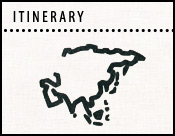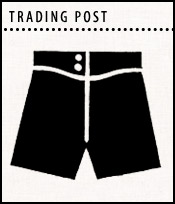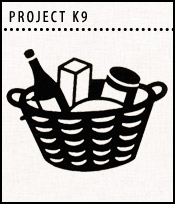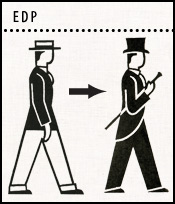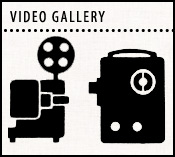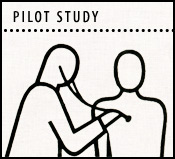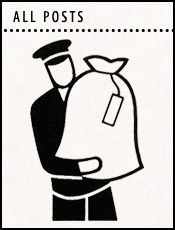May 6th, 2010
Pi Mai Lord
My bag was safe and sound back at the guest house and in celebration, Motta and I decided to take a quick nap. Scott, bless his soul, was still under the weather, and still in the deterioration phase, which we were crossing our fingers would soon transition to the upswing. So for the time being it was once again Mr. Motta and I who heaved out on the Speed TRs. We ordered a couple of fancy banana coffee drinks at a nearby cafe, still in celebration mode, and, fueled by those, we wheeled over to a pharmacy and picked up some electrolytic salts for our dear Mr Norton.
Pi Mai Lao was in full swing by the time we hit the streets, and were it not for the plastic bags that mercifully protected our cell phones, our robots would have been completely destroyed during the first few minutes of the wheel.
As we wheeled north in search of sandwiches, we were repeatedly soaked to the bone. In fact the entire street on which our guesthouse was built, which ran along the water, had descended into an anarchy of water warfare. Everywhere, music was playing, people were screaming, and water and powder were flying. Crowds of young people in black-face rode around in the backs of pickup trucks, jumping up and down until the trucks bounced on their springs like careening jack-in-the-boxes.
It was all we could do to keep our sandwiches dry as we scarfed down lunch at a street stall. Great parades of people were marching through the streets with hand-painted paper banners, displaying the creatures and gods that represent the new year. The winners of last night’s beauty contest were riding on great floats through the streets, still looking gorgeous, though in my estimate overly painted and uncomfortable. Children roamed the streets with water guns, and it seemed like every hose in the city was running. We were soaked and re-soaked and powdered with tapioca. Each subsequent drying left my shirt starchier and starchier, slowly turning it into a kind of crusted armor, which repelled water for a moment before giving up and capitulating to new levels of water-logging.
Foreigners were participating too. Many of the visitors had brought their children, who seemed to be thoroughly enjoying the huge water fight. Older, twenty-something foreigners were also participating, many of whom had bought giant $10 or $15 squirt guns. I found their propensity for spraying a bloke in the eyes to be a little much.
We stopped once more for another cup of coffee from Stew’s favorite coffee fellow in Luang Prabang. For a little less than a dollar, that man will whip up a large paper cup filled with a mean blended coffee drink, made from ice, startlingly strong Lao coffee, and sweetened condensed milk. Quite tasty and invigorating.
As we wheeled on, we started to notice that the streets were emptying of merry makers. This meant that everyone was headed to this large sandy island in the middle of the Mekong for the sand stupa (a structure that houses Buddhist relics) and the Bosi ceremony, the traditional Lao ceremony of well wishing. The island was a new addition to the Luang Prabang landscape. With this 50-year drought, the river had fallen so low as to create a new land mass. The people of Luang Prabang had decided to take advantage of this during the festival. The Vietnamese president was even flying in for the occasion. The people were gathering to continue the party, build sand stupas, and complete the Bosi ceremony, at the end of which white cotton threads are bound around the wrists of the participants.
We piled onto a longboat along with a whole bunch of locals and putted across the Mekong.
On the sand island, we found ourselves once again immersed in a giant crowd, while some water was still being thrown (for instance, I found it impossible to buy a bottle of water and drink more than a third of it before a beautiful woman would come up to me and dump my bottle over my head or down my back). But the weapon of choice here was the white tapioca powder and the black-face. They were selling bags of the white powder everywhere, and I was soon covered with it.
We ran into Stewart’s interns on the island. They had bought some powder and were completely covered in a starchy encrustation. Now in a larger group, we began to roam the island, taking in the many stupas being constructed on the shore, and craning our necks to see into the Bosi ceremony. It seemed the ceremony was closed to the public. Inside, we could barely see a decidedly stuffy procession taking place, while well dressed dignitaries looked on or dozed, decidedly not covered in white powder.
Meanwhile, outside that strange vortex, the party raged on. They were firing homemade rockets into the air, smearing each other with black make-up, and jumping into the Mekong to cool off. We did all of the above, save the rockets.
There were also many traditional music groups marching around the island playing Lao music. Along with these, there was usually a fellow wandering through the surrounding crowd with a gourd filled with some kind of homemade firewater, doling out drams by pouring them into a little length of horn, out of which passers-by could drink.
Having thoroughly enjoyed the sand stupa party, we headed back to the other side of the river on another longboat.
Back on the other side, the madness was in full swing again, with giant speakers pumping deafening music into the streets, a savage upping of the water fight, and even impromptu stripping poles erected in the streets.
The extremes of experience, to be sure.
![]()



























































